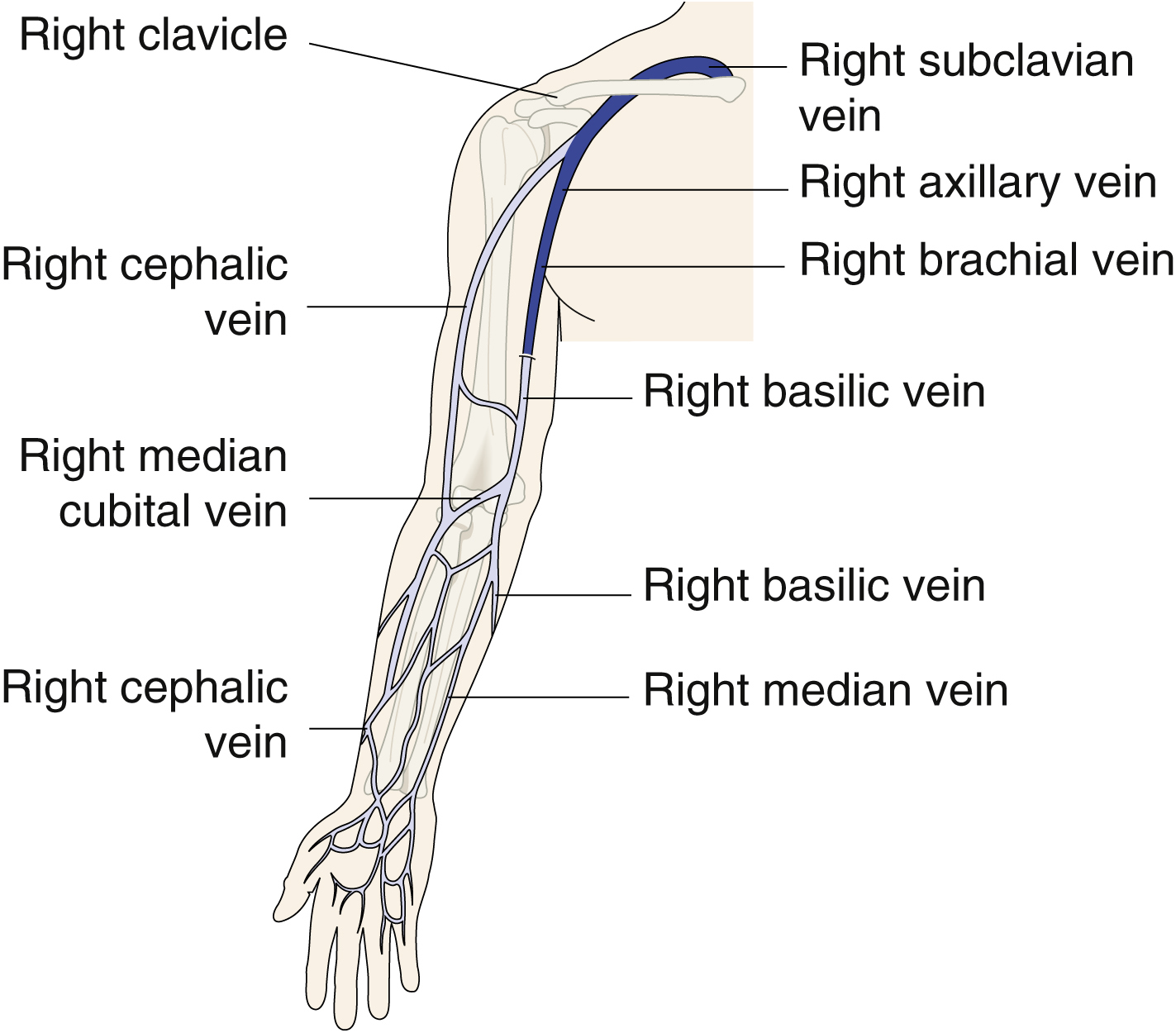vein (v) /vān/ [L, vena] , any one of the many vessels that convey blood from the capillaries as part of the pulmonary venous system, the systemic venous network, or the portal venous complex. Most of the veins of the body are systemic veins that convey blood from the whole body (except the lungs) to the right atrium of the heart. Each vein is a macroscopic structure enclosed in three layers of different kinds of tissue homologous with the layers of the heart. The outer tunica adventitia of each vein is homologous with the epicardium, the tunica media with the myocardium, and the tunica intima with the endocardium. Deep veins course through the more internal parts of the body, and superficial veins lie near the surface, where many of them are visible through the skin. Veins have thinner coatings and are less elastic than arteries and collapse when cut. They also contain semilunar valves at various intervals to control the direction of the blood flow back to the heart. Compare artery. See also portal vein, pulmonary vein, systemic vein. −venous, adj.

